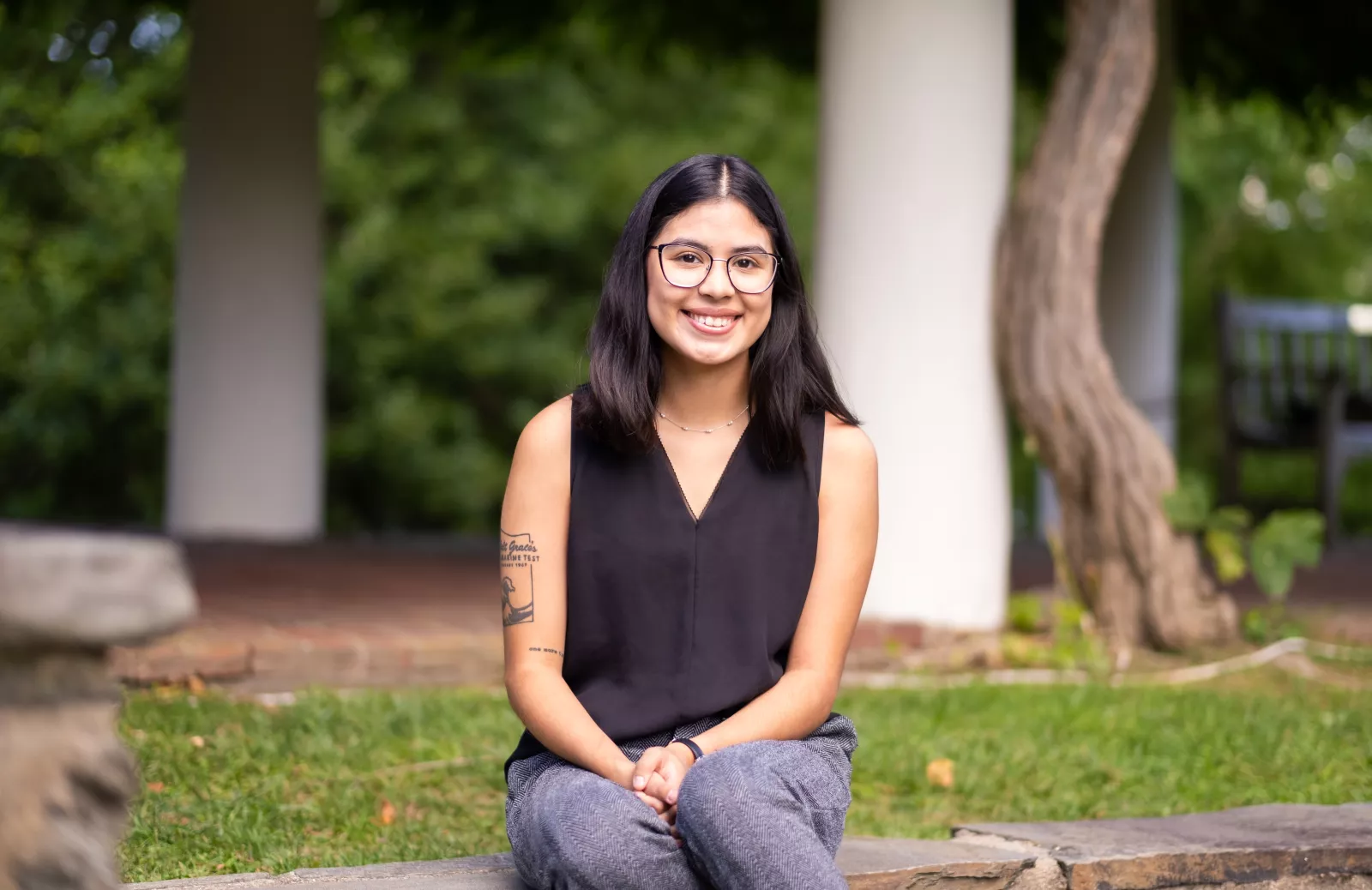
After being a part of the 2020 strike, Keyla Benitez '24 interned for the Who Built Bryn Mawr exhibit to look more closely at the relationship between power and race. During the internship, Benitez was given free range to explore the College's Special Collections and hoped to find something that touched on the Latinx student experience at Bryn Mawr. However, she was disappointed to find only one item out of the entire collections in that area — an article about a racist incident that had occurred to a Latinx Bryn Mawr student in the 1980s. Seeing the single sheet of paper became the spark for Benitez to pursue a history major and a museum studies minor.
“There is power and recognition within archives, and that has to be redefined for it to be inclusive for everyone,” says Benitez.
Benitez is a Mellon Mays Undergraduate Fellow and her research examines the importance of BIPOC communities' access to their history, and why that access is a form of resistance against foreign domination and the erasure of culture. She is working to answer questions such as, "how do we make archives accessible to BIPOC communities? How are archives a physical manifestation of White Supremacy? How can we change the dynamic of history and power?"
During her fellowship she will be looking into institutional archives (specifically Bryn Mawr College and Brown University) and community archives (Interference Archives in New York City and Taller Puertorriqueño in Philadelphia). Benitez hopes that her research will help close the gap of cultural alienation and resist the legacies of colonization.
After Bryn Mawr, Benitez plans on earning her master's in public humanities and a Ph.D. in Latino studies with the goal of eventually working at the National Museum of the American Latino or a Chicano community-based art organization.
Since her WBBM internship, Benitez has continued to work with archives as the archivist for the Fleisher Art Memorial and Mujeres*. Although Mujeres* has been an Alliance of Multicultural Organization (AMO) member for more than 30 years, members in 2018 realized that there was no proper documentation of the group’s history, which led the executive board members to create the Mujeres* archivist position. Benitez recently created the first Mujeres* archives, which is available in the ECC library. Since the COVID-19 pandemic has prevented proper record keeping over the past few years, Benitez wants to perform more oral histories and connect with Mujeres* alums to rebuild connections among members and document the organization’s traditions.
Benitez and her fellow board members have been working hard since the summer to organize programming for this year’s Latinx Heritage Month. Together, the Mujeres* board focused on providing opportunities that amplify the diverse voices that make up the Latinx community. One of the events Benitez helped plan is an archive tour of Taller Puertorriqueño (the cultural heart of Latino Philadelphia) to give space for Puerto Rican students to connect with their community and for other members to learn about the Latinx community in Philadelphia.
“We do so much work for the club and the community, so it’s really fulfilling when we go to the events and we hear students say, ‘I feel like I’m right back at home.’ Hearing that means that I’ve done my job,” says Benitez.
Benitez’s community work does not stop with Mujeres*. She is also busy as the co-president for the Class of 2024, a student coordinator for Teach-Ins for Equity, Inclusion, and Anti-Racism, a museum studies program assistant, the social media coordinator for Pensby, and president of Fem-co.
“I’m very passionate about my community and I know how difficult it is to be an outsider and be excluded. So, I want to give safe spaces to students, especially to first-years, to let them know that there’s people here, there’s students here—we have heart, we have energy to do this.”